Hussam al-Mahmoud | Khaled al-Jeratli | Hassan Ibrahim
The murder of Pascal Sleiman, a coordinator for the Lebanese Forces party, on April 8, reopened the door to a suffering not entirely new to Syrians, but one that has severely worsened after the crime for which Lebanese authorities accused Syrians of involvement.
The narrative based on a statement from the Lebanese army accused Syrians of participating in the kidnapping under the pretext of stealing Pascal Sleiman’s car. This version was doubted by some Lebanese, pointing to other influential parties on the ground directly linked to the case.
This issue has brought the presence of Syrians in Lebanon back to the forefront again, but in a different context this time. The presence of Syrians in Lebanon used to be a consistently exploitable issue, turning it into a scapegoat for unresolved domestic problems whenever needed. This time, it was used more violently and at multiple levels, threatening the stability of the refugees and their ability to remain in their homes, boosting voices calling for their deportation and return to their original countries.
Enab Baladi discusses in this report the situation of Syrian refugees and their demonization by official institutions and the political circles in Lebanon, sometimes blaming them for crimes, and other times for the deterioration of economic conditions, while Lebanon itself is essentially engulfed in internal and regional conflicts unrelated to the refugees.
The report also discusses the new circumstances surrounding the conditions of Syrians and the available options, in the absence of any responsible party giving reasonable attention to the needs and concerns of those fleeing death in their home country.
Syrians are besieged
Syrians find themselves besieged in Lebanon under the label “displaced” used by Lebanon and “refugees” as termed by the world and law for those fleeing across national borders. They are also besieged by a politically provocative discourse, and incidents of hatred and racism on the ground threatening their existence.
The features of this siege and unprecedented escalation in intensity were highlighted by a call from Bassam Mawlawi, the Minister of Interior in the caretaker government of Lebanon, to limit the presence of Syrians in Lebanon, emphasizing the necessity to strictly apply Lebanese laws to Syrian refugees.
Mawlawi’s statements went further, and he took a more escalatory path during an extraordinary meeting of the Central Security Council of Lebanon. He mentioned that approximately 35% of those detained in Lebanese jails are Syrians, as reported by Lebanese media, including the channel “MTV.”
He stated that such a presence of Syrians in Lebanon is “unacceptable” and unsustainable and that Lebanon should not allow Syrians to stay on its land against financial gains.
The Minister of the Displaced in Lebanon, Issam Sharafeddine, talked about the presence of 20,000 armed individuals within Syrian camps, to which the Minister of Interior responded, “I don’t know if he counted them,” noting that the security forces have all the information regarding the camps.
Prior to these statements, along with them, and following them, incidents of racism and hatred against refugees in Lebanon were noted. Activists across social media circulated a video showing a group of Lebanese citizens demanding that Syrian refugees vacate a certain area in Lebanon where they reside.
The video showed Lebanese individuals on motorcycles, using loudspeakers to order Syrian refugees in the Burj Hammoud area to evacuate commercial stores and homes within days. Flyers were also circulated in the walls, urging every Syrian in Beirut’s Ashrafieh, Rmeil, and Saifi neighborhoods, to leave the area and never return to avoid potential outbreaks of anger, violence, and security breakdown in the absence of state control and the failure of security agencies and municipalities to carry out their duties to protect Lebanese citizens.
At the same time, recorded videos were shared showing assaults on Syrian refugees in Lebanon, including the beating of a Syrian worker in the Tabarja area.
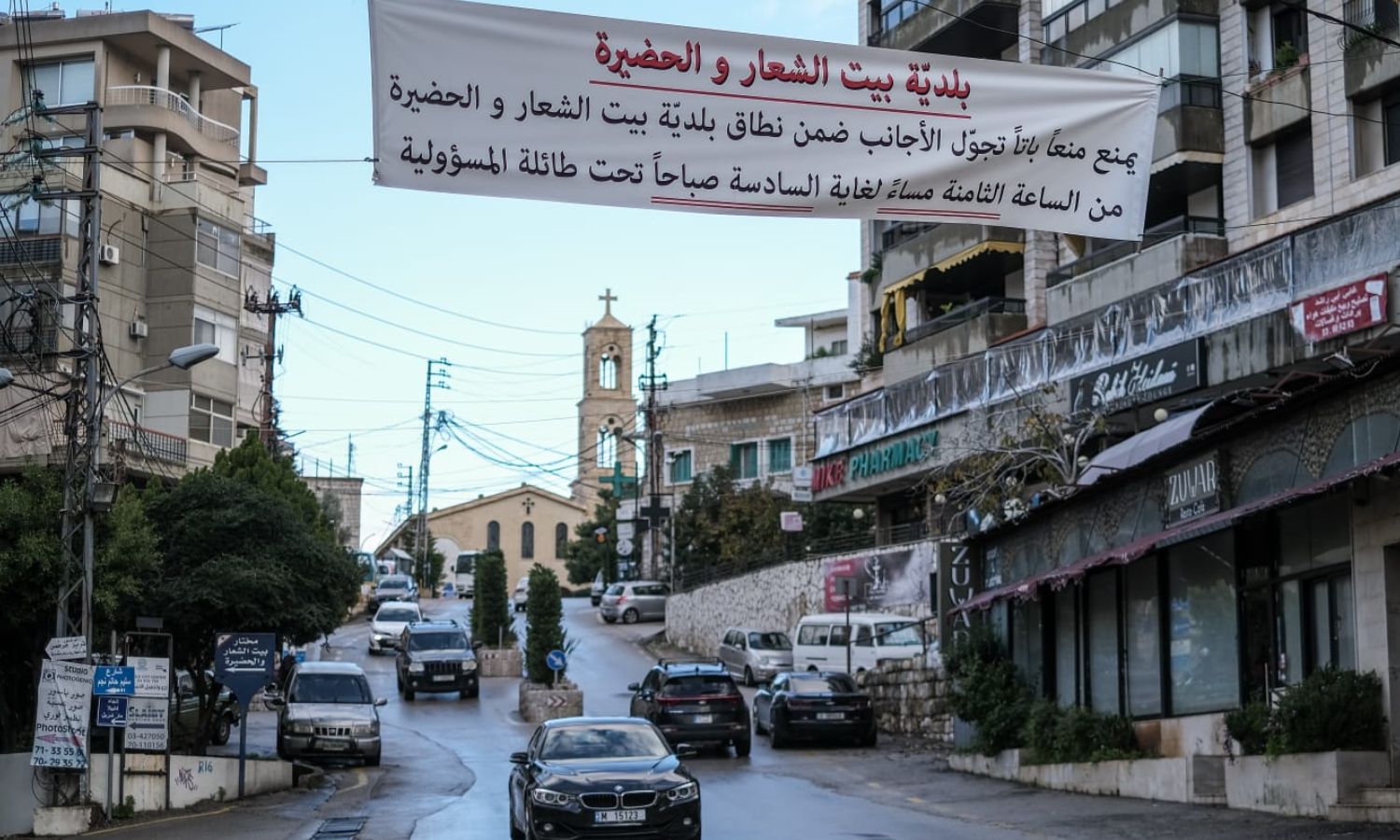
A sign in the Lebanese village of Beit El Chaar banning foreigners from moving within the municipalities of Beit El Chaar and El Hadeereh – January 14, 2024 (TNH)
Fingers pointed at the regime
Wadih al-Asmar, head of the Lebanese Center for Human Rights, explained to Enab Baladi that the discourse of Lebanese authorities exposes Syrian refugees to violence and assault, giving some citizens the feeling that they are outside the realm of accountability, enabling them to assault Syrian refugees or residents in Lebanon, or those mistaken to be Syrians based on their physical features, and this indeed happens as states often do not pursue those committing hate crimes and racism against Syrians.
Al-Asmar accused the Syrian intelligence of stirring the anti-Syrian campaign from beyond the borders or through agents in Lebanon, pointing out that this aligns with the Syrian regime’s attempts to pressure the international community to secure funds and to bring hard currency into Syria, specifically the US dollar.
For over a year, the regime has been pressuring its allies in Lebanon to push for the return of Syrians to Syria so that the United Nations and international organizations can provide them with aid in Lebanon, making this campaign serve the Syrian regime’s interests while it coincides with political factions publicly opposing the regime, like the Lebanese Forces party.
In his view, despite having tools at its disposal, the United Nations High Commissioner for Refugees (UNHCR) could use to pressure the Lebanese state, it does not use them, suggesting that the organization may have a different agenda from protecting refugees.
In response to a question about who is responsible for protecting Syrian refugees, al-Asmar said, “In principle, the judiciary, but the judiciary is negligent in this regard.” He mentioned the need for Syrians in Europe to initiate a broad campaign to pressure the Lebanese government to ensure serious protection and to hold the United Nations and the UNHCR accountable for their laxity in protecting Syrian refugees in Lebanon.
Denying incitement by incitement
Political escalation, followed by hate incidents, was again accompanied by statements from Lebanese Interior Minister Bassam Mawlawi, who denied government incitement against Syrians, considering that “the Lebanese are far from being racist.” However, he linked the protection of refugees to their presence illegally in his country.
Mawlawi added in his speech to the Al-Hadath channel that the Lebanese authorities call for the application of the law, and that there are about two million Syrians in Lebanon, while the number of Lebanese citizens is only about four million. He remarked that the majority of Syrians in Lebanon have illegal residences and do not have residencies issued by the General Security, operating outside the laws that allow them to work in certain professions in Lebanon.
Mawlawi also called for the application of Lebanese laws to all residents in Lebanon, without considering this as incitement or causing strife, believing that Lebanese want to apply the law on Lebanese soil and do not want to assault Syrian citizens. Lebanon is committed to human rights, and the Lebanese authorities protect everyone on Lebanese territory legally, clarifying that protection starts from the legality of residence on Lebanese soil, urging all Lebanese to seriously calm down and not to be drawn into strife.
Days later, the Syrian presence in Lebanon remained top of the political speech, as the leader of the Lebanese Forces party, Samir Geagea, said that 40% of Syrians in Lebanon are “illegal refugees,” and he noted that the relationship with the Syrian people has always been good, but the relationship with the Syrian regime has been and remains bad, emphasizing solidarity with the Syrian people’s revolution, which is considered one of the most suffering peoples in the 21st century.
Geagea assumed the continuation of “the Syrian crisis” for an additional 13 years, and the number of Syrians in Lebanon reaching four million, equaling the number of Lebanese citizens, considering the issue of Syrian refugees in Lebanon “a real existential threat to Lebanon.”
He explained that according to international law, Lebanon is a transit country, not a country of asylum, and that Lebanon had spent $70 or $80 billion due to the Syrian displacement, with corruption ongoing in the state. Geagea views all Syrians currently in Lebanon as having an “illegal” presence, except for 300,000 Syrians who have a residency.
In his opinion, deportation needs a state initiative, indicating that the General Security law stipulates the deportation of those who do not have residency, and this correct decision does not require a judicial decision, and that the solution is Lebanese, not in the European Union, in his words.
He also entrusted the Lebanese General Security, Internal Security Forces, and the Lebanese Army with the primary central responsibility in the matter of Syrian refugees, politically implicating the Prime Minister and the ministries of interior and defense, urging the Minister of Interior to implement the directives he issued.
Geagea expressed readiness to provide volunteers to address the refugee issue and work on this file, emphasizing that if the European Union considers the refugee file in Lebanon a humanitarian issue, it should distribute them across all European countries.
On April 27, the Lebanese Forces party called for a “national meeting” attended by parties, blocks, deputies, independent figures, and Lebanese thought leaders, and its final statement included a set of “constants,” including strengthening control over the entire border with Syria, working to control illegal crossings, closing all illegal crossings through which smuggling of weapons, persons, money, goods, and criminals continues.
The statement also highlighted the urgent need to implement a decisive plan to return Syrians residing in Lebanon “illegally” to their homes, in enforcement of the agreement signed in 2003 between Lebanon and the United Nations High Commissioner for Refugees, which does not consider Lebanon a country of asylum, considering the stay of Syrians in Lebanon “illegally” undermines the foundations of the entity and constitutes a ticking time bomb on the verge of explosion.
During an interview he had with the Associated Press, Samir Geagea stated that 1.7 million Syrians live in Lebanon illegally, and in international law, Lebanon is not considered a country of asylum but a country of transit.
He added during the interview that there is no country in the world where the proportion of refugees is about 50% of its citizens, calling for correcting this “abnormal situation” by returning “regime supporters” to areas governed by it, and the opponents to opposition areas.
Europe enticing Lebanon
The overall tension and lack of stability in Lebanon, coupled with the anti-refugee rhetoric, have reflected in a surge of refugees from Lebanon to Cyprus, after hosting 3,000 Syrians since the beginning of the year, compared to 4,500 Syrians in 2023.
Against this backdrop, the President of Cyprus and the President of the European Commission visited Lebanon on May 2, and they met with the Prime Minister, Najib Mikati, who requested European and international recognition that most Syrian areas are now safe, which would facilitate the process of returning “the displaced.”
The official Lebanese plan to return refugees, in its first stages, targets Syrians who entered Lebanon for purely economic reasons, and do not qualify as displaced, according to what was reported by the Lebanese National News Agency (NNA).
Before the visit, Lebanese officials escalated their rhetoric against the European Union, calling for the distribution of refugees among its countries, and some even threatened to transport Syrians to Europe by ships.
During their visit to Lebanon, the European Union allocated one billion dollars to Lebanon, within a financial package that includes:
- Enhancing basic services and investments in areas such as education, social protection, and health for the Lebanese people.
- Economic, financial, and banking reforms, as these reforms are essential for improving the overall economic situation of the country in the long term. This would allow the business environment and the banking sector to regain the confidence of the international community and hence enable the private sector to invest. Lebanon needs and deserves a positive economic momentum to provide opportunities for its businesses and citizens.
- Supporting the Lebanese Armed Forces, General Security, and Internal Security, focusing primarily on providing equipment, training, and necessary infrastructure for managing borders. Additionally, it would be very beneficial for Lebanon to enter into working arrangements with the Frontex agency, particularly regarding information exchange and situational awareness.
Talking about a billion euros for Lebanon has not restrained the official Lebanese discourse, as Prime Minister Najib Mikati reiterated during the same meeting the need for European and international recognition that the majority of Syrian areas are now safe, which would facilitate the process of returning “the displaced.”
On the other hand, the leader of the Free Patriotic Movement, Gebran Bassil, during a press conference on April 3, questioned the mechanism for distributing the funds, and whether they would be distributed to Syrians and Palestinians coming from Syria later.
The leader of the Lebanese Forces party, Samir Geagea, said in a series of posts on “X” (formerly Twitter) that his stance is “firm, principled, and sovereign and does not change with a billion euros, or tens of billions,” adding, “We continue in everything we do until the last illegal immigrant is removed from Lebanon.”
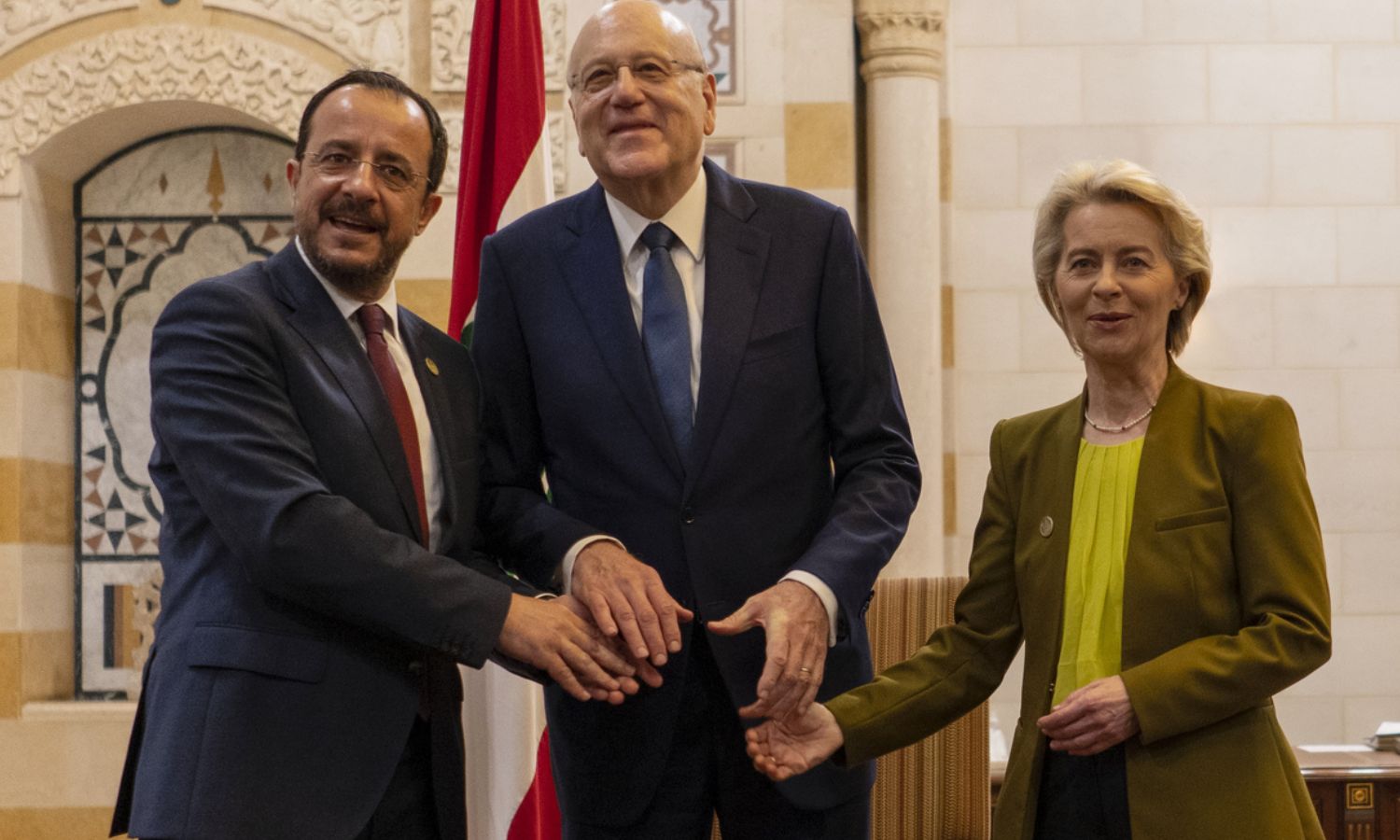
European Commission President Ursula von der Leyen meets Lebanese caretaker Prime Minister Najib Mikati in the presence of the President of Cyprus in Beirut – May 2, 2024 (AP)
No solutions on the horizon
Lebanon’s political platforms have long been the main driver of racist rhetoric directed against Syrian refugees in the country. These statements have been linked to racist campaigns that peaked last April, impacting the lives of refugees even on the streets.
On April 26, the Access Center for Human Rights (ACHR) reported that, on April 19, Lebanese municipalities launched a campaign to tighten measures against Syrian refugees. Municipalities in the provinces of Mount Lebanon, the North, and Bekaa issued discriminatory decisions and warnings, leading to the expulsion of refugees and the closure of their businesses, in execution of directives from the Minister of Interior. During the same period, refugee camps faced threats of demolition.
According to testimonies from Syrian women refugees in Lebanon, to Enab Baladi, on April 17, “Saad Nayel” (Arab Issa) and “Hilala” camps were raided, with instructions for refugees not to receive anyone from “Rajab” camp in Bar Elias and al-Marj, pushing some refugees to attempt to relocate their belongings elsewhere.
Eviction notices also affected camps in Bar Elias, along with “Rajab al-Marj” and “Deir Zanoun” camps, under the pretext of having criminals in these camps. The demolition decision of a camp in al-Marj was stopped following the intervention of notables and clergy, while a complete camp was removed in Bar Elias, according to Lebanese media.
More than refuge.. More than a plan
The roots of the Syrian refugee problem in Lebanon date back to earlier years, before taking its current form amid statements by Lebanese officials. Government plans to solve the problem were proposed without implementation, culminating in the resignation that deportation is not possible.
In October 2023, Lebanese Foreign Minister, Abdullah Bou Habib, stated that the international decision summed up that “there is no return for the displaced,” as the “displaced” shall remain where they are, and countries will not pay them if they return, noting that the United Nations still considers Syria an unsafe country.
The minister explained that Syrian President Bashar al-Assad had previously informed the Lebanese side of his readiness to receive the displaced.
However, al-Assad indicated during a meeting with a Lebanese delegation in February of the same year the difficulty of their return due to receiving external aids, as their villages are destroyed and cannot be rebuilt without Arab and international support, as conveyed by Bou Habib.
This situation led to a new wave of refugees from Syria towards Lebanon, starting in August 2023, amid continuing conditions that repelled Syrians from their country.
According to international and United Nations classifications, and those issued by international human rights organizations, Syria is not considered a safe country for the return of refugees, and the economic and living situation has placed more than 90% of Syrians below the poverty line for years.
Former Lebanese Member of Parliament and politician, Mustafa Alloush, told Enab Baladi that the principle of prolonged stay in Lebanon and the blockage of return prospects, along with the declining economic situation played a role in the rise of racism against refugees, despite many Lebanese sympathizing with Syrians against injustice.
He added that some “individual crimes” of various types, associated with Syrians, do not need political use to appear, but the political use of the refugee file is also present, and all these factors collectively form a main reason for the rise of this rhetoric.
The impotence of Lebanon’s political powers to solve the fundamental issues in the refugee file and the political usage of it are main reasons for the escalating severity of events and acts of violence against refugees.
Mustafa Alloush, Lebanese politician and former Member of Parliament
Alloush pointed out that the exploitation of the Syrian refugee file occurred not only in Lebanon but also in Turkey, promoting some measures that also restricted refugees there.
Ramzi Kaiss, a Lebanon affairs researcher at Human Rights Watch, told Enab Baladi that the hate speech directed by Lebanese officials toward refugees was translated on the ground through assaults and decisions recently taken against Syrians. The rhetoric did not turn into attacks by ordinary individuals on the streets but took the form of laws, as some municipalities issued restrictions preventing Syrian refugees from moving during specific times, or evicting them from their homes and workplaces in certain areas.
Additionally, the Lebanese army arrested Syrian refugees, then deported them to Syria without even considering the risks surrounding the deportation process for the refugees themselves, including defectors from the regime’s army and opponents of the regime.
According to Kaiss, Lebanese officials have imposed discriminatory practices against Syrians for years as a means of forcing them to return to Syria, which remains unsafe.
In June 2023, the issue of paying electricity bills for Syrian and Palestinian refugees in Lebanon surfaced.
Lebanese Minister of Energy, Walid Fayad, stated that the cost of electricity must be paid because there are production, distribution, maintenance, and salary costs, which should be covered through the electricity tariff.
He added that it is not required for the Lebanese people to cover the consumption costs of Syrians and Palestinians, and each party should cover its own consumption cost, as reported by the Lebanese National News Agency.
An agreement was then reached to form two technical committees, the first concerned with Syrian camps to pay the dues owed by them, and the second with Palestinian refugees, with the first meeting at the Electricity of Lebanon institution to be devoted to the Palestinian camps issue and the second to the Syrian camps.
On May 30, 2023, Bint Jbeil municipality in the Nabatieh governorate of Lebanon imposed a curfew on Syrian refugees, daily from 8 PM to 5 AM.
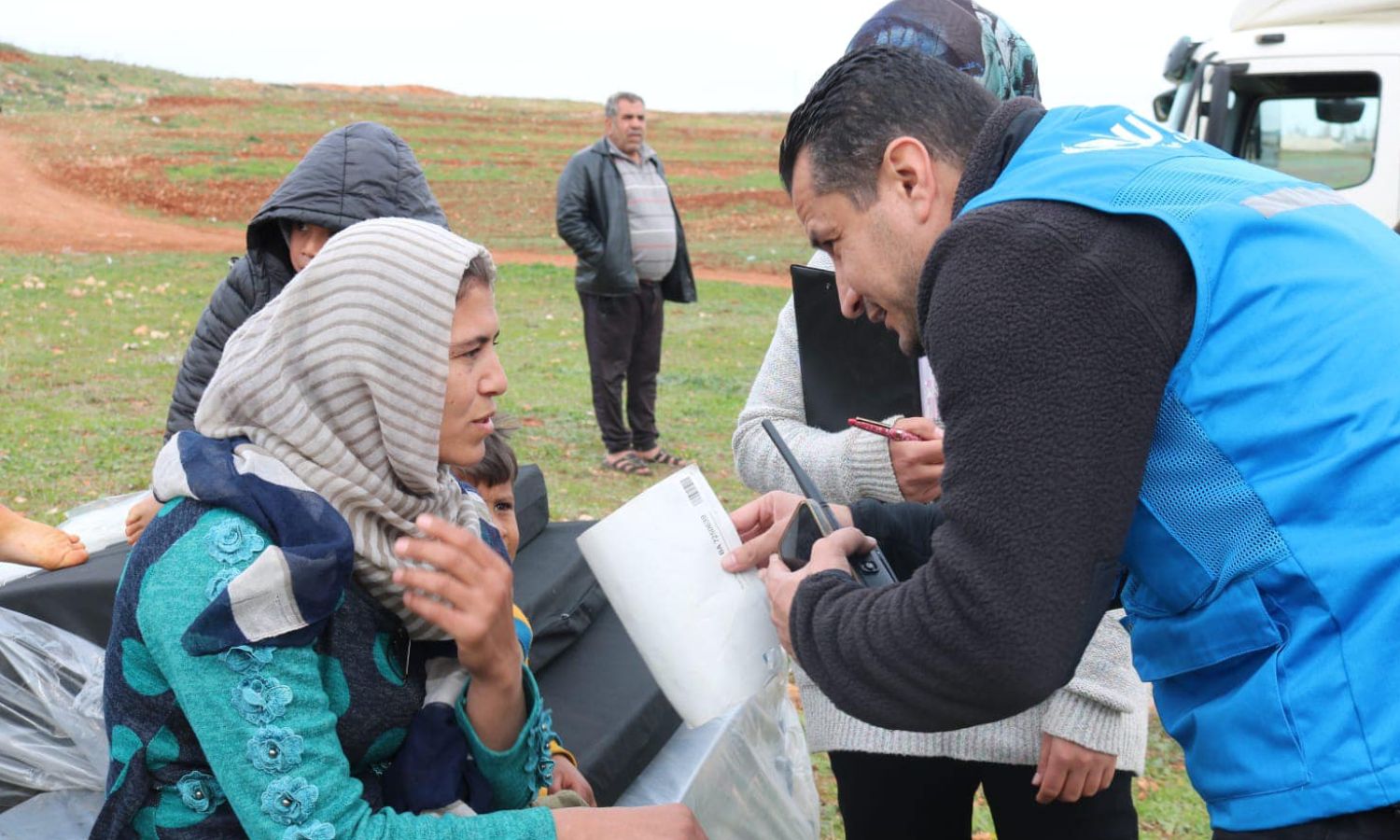
Distribution of UNHCR aid (blankets and mattresses) to families in the Marjeyoun area of Lebanon – December 21, 2023 (UNHCR Lebanon)
The UNHCR is absent, the regime a bystander
Fear loomed over Syrian refugees living in Lebanon, who were contacted by Enab Baladi to share their stories. Most of them refused to talk, fearing attacks or deportation.
A Syrian activist residing in Lebanon, who preferred not to be named due to security concerns, told Enab Baladi that he documented cases of attacks on Syrian refugees in Lebanon and was able to identify the assailants. However, he is unable to relay this information to legal authorities, knowing all too well that such an action would negatively impact him instead of the perpetrators.
He added that the UNHCR is absent from these events, especially since it lacks an “emergency plan” for such situations.
Human rights activist Suhaib Abdo (residing in Lebanon) told Enab Baladi that recently, he documented stories of young Syrians who were attacked in the streets and found that certain Lebanese individuals repeatedly appeared in various incidents of this type.
He added that the young men who were attacked consistently refuse to approach law enforcement agencies to reclaim their rights.
Abdo noted that among those attacked was a young Syrian registered with the UNHCR who also refuses to report the assault to the commission, fearing that some of its staff are allied with Lebanese parties, which could negatively impact the refugee if he reported his case. He explained that the distrust of the commission’s staff is partially justified but cannot be generalized to all employees.
The Office of the United Nations High Commissioner for Refugees did not respond to questions posed by Enab Baladi about the escalation in Lebanon against refugees.
The most recent post by the UNHCR’s Lebanon office regarding violence against refugees was on April 11, stating that it alerted refugees via WhatsApp about the need to stay vigilant during demonstrations, road closures, or any other restrictive measures in their areas, and to avoid large gatherings.
It added that the refugees themselves are “best suited to make decisions” about their personal safety and surroundings, noting that its services remain available during official working hours unless otherwise announced.
Where is the regime from this escalation?
The Syrian regime, as usual, ignored the violations against Syrians in Lebanon, with only a comment from the Syrian Embassy in Beirut condemning the killing of Pascal Sleiman and some reactions that led to attacks on some Syrians.
On April 12, the embassy stated that it is monitoring the affairs of Syrians in Lebanon in coordination with the relevant Lebanese authorities to preserve the “brotherly relationship between the two peoples,” although the embassy’s message hinted that the Syrian government has always supported the Syrians’ return to their country. However, the return has been politicized by donor countries and certain international organizations involved in the matter, along with unilateral coercive measures imposed on the Syrian people, according to the statement.
Meanwhile, the violations against Syrian refugees in Lebanon were absent from the Syrian state media and those close to the regime. Coverage by the official Syrian news agency (SANA) on Lebanon was limited to the escalating Israeli engagement with Hezbollah.
The local newspaper Al-Watan reported statements by Lebanese officials and figures in line with the Syrian regime’s narrative on working towards a “dignified” return of Syrians to their homeland. In a special statement, the Minister of the Displaced in the caretaker Lebanese government, Issam Sharafeddine, said that the current Lebanese movement focuses abroad as the main impediment to the return of displaced people are the United States and the West, since they invest in this file.
Political analyst Samer Khallouie told Enab Baladi that the Syrian regime does not object to what the Lebanese government is doing against Syrian refugees on its territory because the refugees refuse to return to Syria despite their difficult conditions in Lebanon. Thus, the regime, led by Bashar al-Assad, is comfortable with these pursuits.
Khallouie noted that the regime’s stance towards what happens to Syrians in Lebanon has not changed, seeing that Lebanon is governed by Hezbollah and its allies, with ongoing communication, coordination, and intersection of interests between the parties. He pointed out that what matters to Bashar al-Assad in Lebanon is its role as a transit and trade country for drugs shared with Hezbollah and circumventing the sanctions imposed on him.
The main reason for the regime’s silence, Khallouie believes, is that Bashar al-Assad does not care at all about the state of Syrians, whether inside Syria or abroad. This has led some of his supporters to question why he hasn’t taken any measures against the racial attacks in Lebanon, which usually do not distinguish between supporters and opponents of al-Assad.
The simplest justification for the existence of any state or government in any geographic area is to secure the protection of its citizens, and based on international laws and treaties, the state is responsible for protecting its citizens abroad and ensuring their safety and rights, as specified by law and the constitution.
The Syrian Ministry of Foreign Affairs and Expatriates is responsible for protecting the rights of Syrians abroad, according to its tasks and under the provisions of the constitution, including the care of Syrians abroad, their sponsorship, and the effort to document the links between them and their homeland, and expressing opinions in legislation and regulations related to expatriates.
Its tasks include caring for Syrians in their relations with other countries, protecting their economic, cultural, and other interests, intervening when necessary for these purposes at embassies and representations or through official channels in the concerned countries, exercising all consular powers, and caring for the civil and personal affairs of Syrians abroad.
Researcher Nader Khalil at the Omran Center for Strategic Studies told Enab Baladi that the regime does not want the refugees to return for several reasons, primarily its inability to meet the economic and basic service requirements it cannot provide to those already in its controlled areas.
Yet, the regime never misses an opportunity to exploit the presence of refugees in neighboring countries and the problems that arise from this, through maneuvers and attempts to extort gains for itself, according to the researcher.
Khalil believes that the regime has an interest in complicating the situation of Syrians in Lebanon to pressurize the international community, and specifically Western countries, to find solutions that would lead to their return to Syria, which means negotiating with the regime to create a safe environment for their return, and funding reconstruction operations under the guise of “early recovery” to create an environment that allows a significant number of refugees to return, benefiting the regime by bringing in international funds to help rebuild it economically and politically.
if you think the article contain wrong information or you have additional details Send Correction
النسخة العربية من المقال
-
Follow us :
Most viewed
- Printing Syrian currency in Europe... A file on the table
- Black market traders manipulate dollar prices under eyes of Central Bank officials
- AANES insists on decentralization in Syria
- Al-Sharaa attends 4th Antalya Diplomacy Forum
- Books make a comeback in Damascus libraries after being banned under Assad












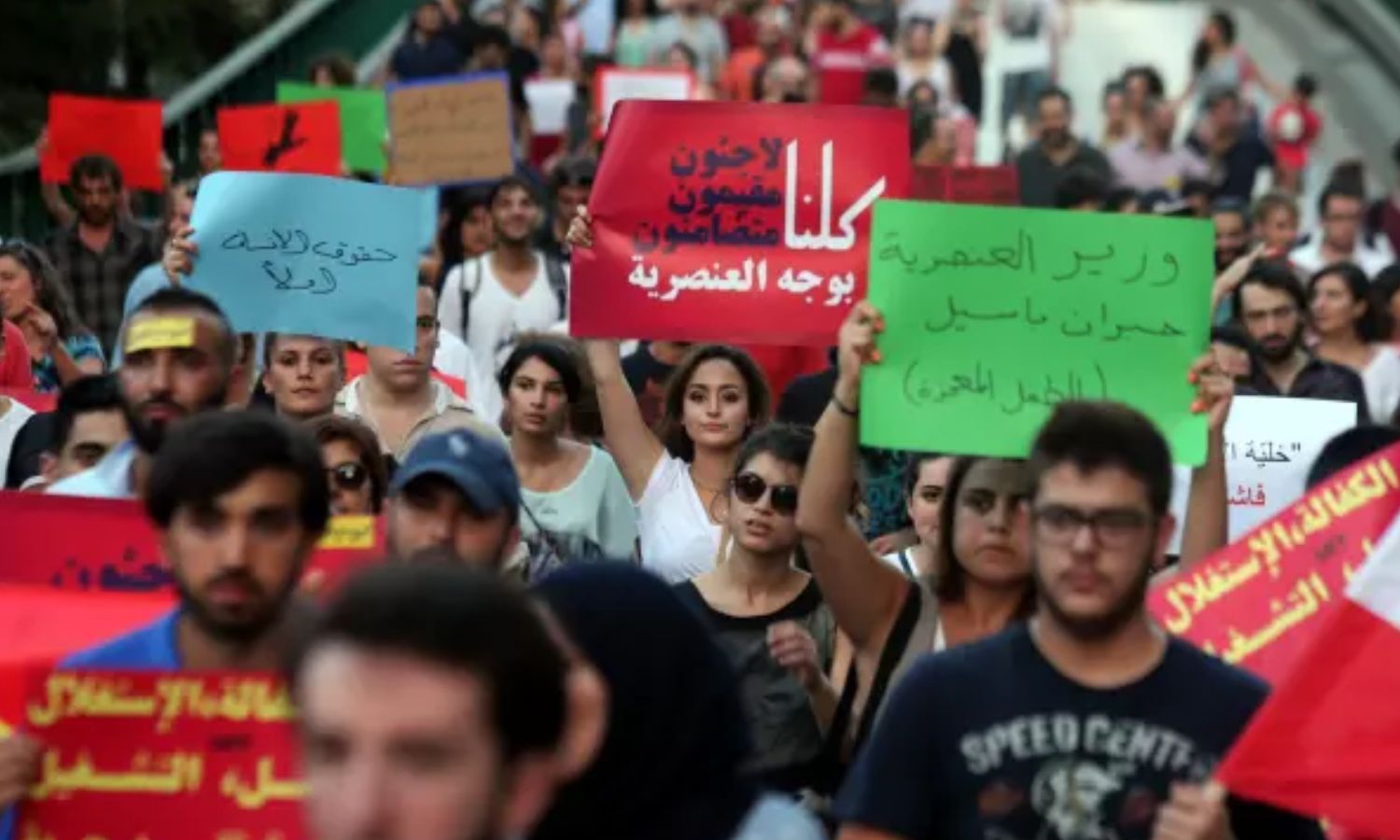
 Protest against racism and hate speech against foreigners in Beirut, Lebanon - 2016 (IRIN)
Protest against racism and hate speech against foreigners in Beirut, Lebanon - 2016 (IRIN)





 A
A
A
A
A
A
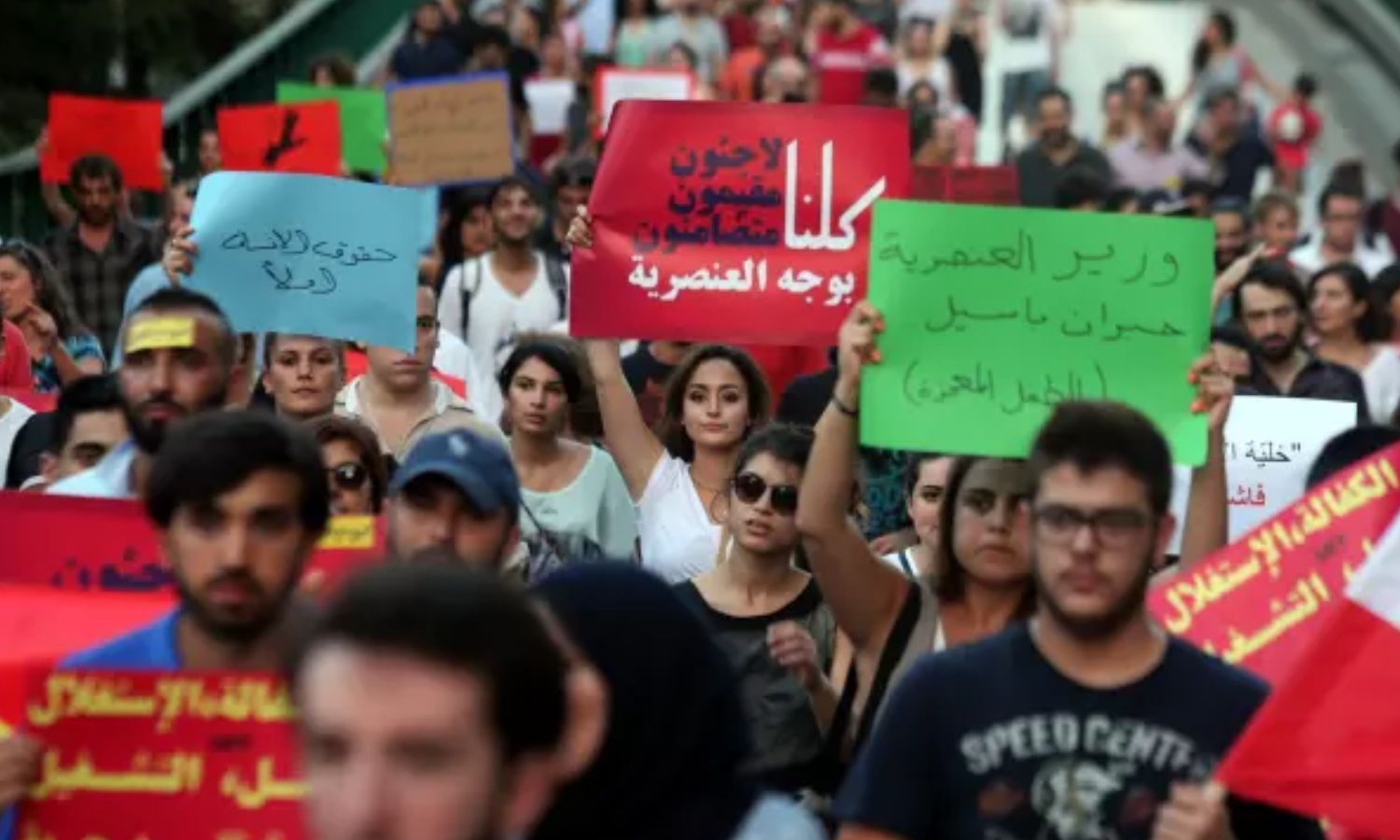
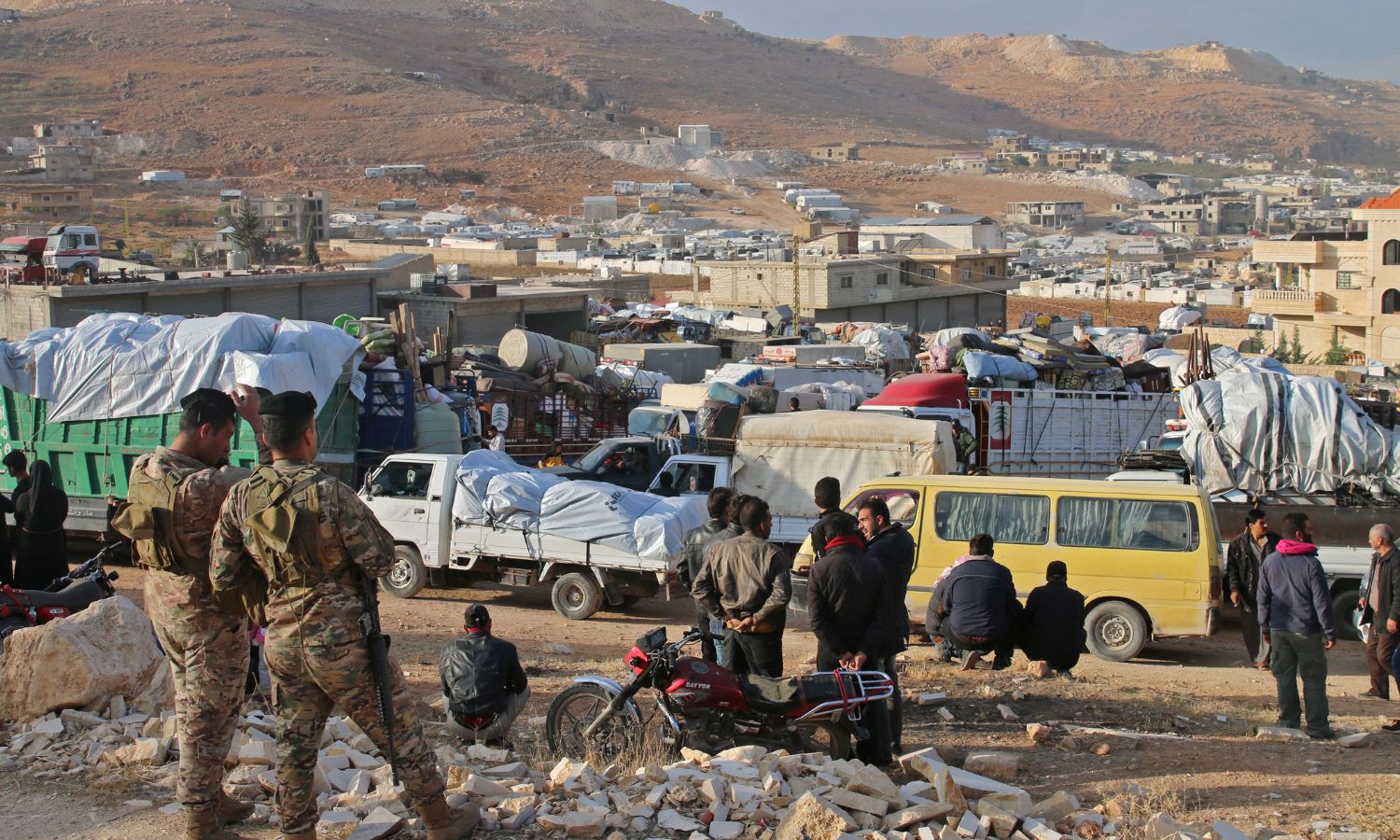


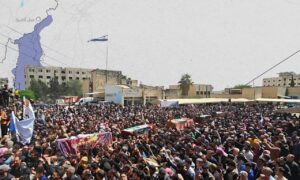




 More In-Depth
More In-Depth